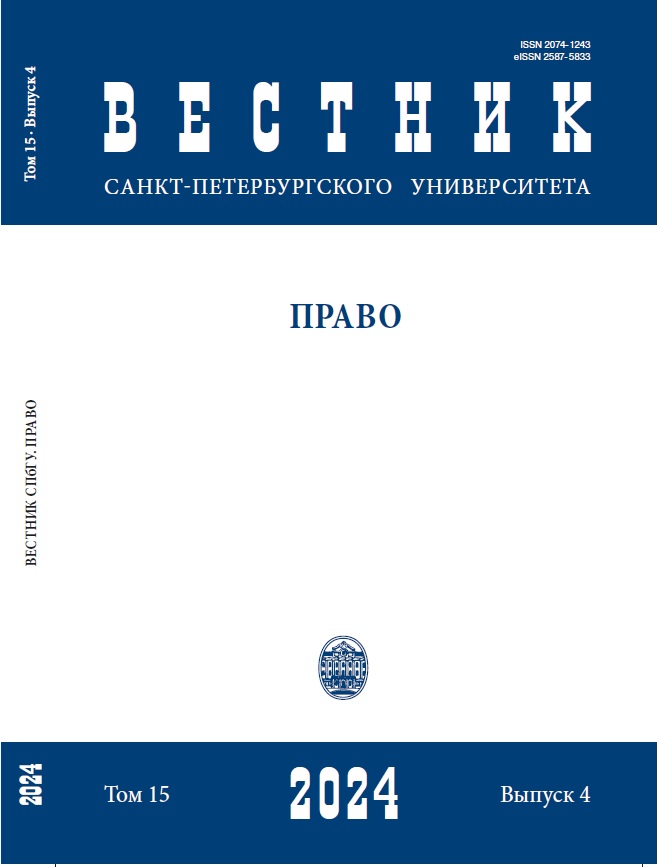Performance of obligations stemming from oil transportation contract under Russian law
DOI:
https://doi.org/10.21638/spbu25.2024.408Abstract
The paper examines the performance of obligations stemming from the contract for the transportation of oil through the system of the main pipelines and identifies the nature of this contractual structure under Russian law. The relevance of the paper arises from the need to establish a uniform and consistent legal framework for relations developing in the oil sector of the fuel and energy industry of Russia using oil transportation as an example. The research aim is to examine the essence and characteristics of the performance of these obligations, mainly the oil transportation obligation, and the legal nature of the contract that formalises them. The material was the Civil Code of the Russian Federation and other regulatory legal acts, national standards and technical documents ruling oil quality and the process of its transportation, as well as domestic authors’ studies in the field of civil law. The methodological basis consisted of general scientific (analysis, synthesis, analogy) and special legal methods (comparative-legal, formal-logical, historical, systemic, structural-functional methods, and a method of interpretation). It is justified that the relations for the transportation of oil through the system of the main oil pipelines are closer to the obligations for the provision of fee-based services, although do not fully correspond to their legal nature. Due performance of the transportation obligation involves receiving, at the point of departure and delivery, for a fee, of a specified quantity and quality of oil through the system of the main oil pipelines to the destination within the agreed period. Good faith performance of this obligation implies compliance with the requirements of fair dealing, cooperation between parties and cost-effectiveness. Due and good faith performance of obligations stemming from the contract for the transportation of oil through the system of the main oil pipelines is designed to contribute to the balanced development of the oil and related industries of the Russian economy and to ensure national energy security. There are not enough special civil law norms that would regulate these relations in detail. The existing gaps might be filled through the adoption of a federal law.
Keywords:
performance of obligations, contractual obligation, good faith principle, fair dealing, cooperation, cost-effectiveness, Russian law, civil law
Downloads
References
Downloads
Published
How to Cite
Issue
Section
License
Articles of "Vestnik of Saint Petersburg University. Law" are open access distributed under the terms of the License Agreement with Saint Petersburg State University, which permits to the authors unrestricted distribution and self-archiving free of charge.






